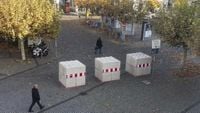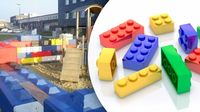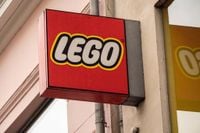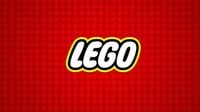In a significant legal battle, the Danish toy giant LEGO has initiated legal proceedings against a Dutch company named Betonblock, claiming trademark infringement. This lawsuit, filed in The Hague, aims to prevent the association of Betonblock’s concrete products with the iconic LEGO brand, which has delighted children for nearly a century.
LEGO's complaint centers on Betonblock's marketing of concrete forms that resemble LEGO bricks. The company explicitly uses the term "Beton-Legosteine" (Concrete LEGO bricks) on its website, which LEGO argues infringes upon its protected trademark. LEGO's lawyer, Jeroen Boelens, asserted that the use of the LEGO name in this context is damaging to the brand's reputation. He stated, "The LEGO brand is being used in a way that damages it." This legal action is part of LEGO's broader strategy to safeguard its brand identity and prevent it from becoming a generic term.
Betonblock, however, has vehemently rejected the accusations, labeling LEGO's lawsuit as "corporate bullying." Marketing Director Sander Tacx responded with irony, saying, "No eight-year-old child has ever been given a 2,500-kilogram concrete block because they wanted LEGO bricks." This statement underscores Betonblock's argument that their products are not intended for children and that the comparison to LEGO bricks is a common practice within the industry.
The concrete blocks produced by Betonblock are designed as a practical solution to prevent vehicle ramming incidents, a concern that has gained traction in Europe following several tragic events. These blocks are intended to be a cost-effective means of enhancing public safety. Despite the serious nature of their application, the branding and marketing strategies employed by Betonblock have drawn LEGO's ire.
LEGO's commitment to protecting its brand is not new. The company has previously taken legal action against various businesses that it felt were infringing on its trademark. Just last year, in April 2024, LEGO filed a lawsuit against a Dutch entrepreneur selling railway kits that bore a striking resemblance to LEGO products. This pattern of legal action reflects LEGO's vigilance in maintaining its brand image and preventing any dilution of its trademark.
In the current case, the legal proceedings will determine whether Betonblock's use of the term "Beton-Legosteine" constitutes a violation of LEGO's trademark rights. The outcome could have significant implications for both companies. If LEGO is successful, it may further solidify its control over its brand and prevent similar associations in the future.
On the other hand, if Betonblock prevails, it could set a precedent for other companies that utilize similar branding strategies. The case highlights the ongoing tension between trademark protection and creative marketing practices, raising questions about the limits of brand identity in a competitive marketplace.
LEGO's proactive approach to safeguarding its trademark is driven by a desire to maintain the integrity of its brand, which has become synonymous with quality and creativity. The company fears that allowing terms like "LEGO" to become generic could undermine its brand value and the unique identity it has cultivated over the years.
The public's perception of LEGO is deeply intertwined with its reputation for innovation and fun. The company's iconic plastic bricks have inspired countless generations of children, leading to a vast array of products, including books, video games, and even Oscar-nominated films. This cultural significance adds weight to LEGO's argument that any misuse of its name could harm not only its business but also its legacy.
The legal battle between LEGO and Betonblock serves as a reminder of the importance of trademark rights in today's economy. As businesses strive to carve out their niches, the line between inspiration and infringement can sometimes blur. Companies must navigate these waters carefully to avoid potential legal repercussions.
As the case unfolds, both parties will likely present their arguments in a manner that reflects their respective interests. LEGO will emphasize the importance of brand protection, while Betonblock will argue for its right to operate within a competitive market without undue interference.
Ultimately, the court's decision will not only affect the two companies involved but could also influence how trademark laws are interpreted and enforced in the future. With the rise of e-commerce and digital marketing, the stakes are higher than ever for brands looking to protect their identities.
In conclusion, the ongoing legal dispute between LEGO and Betonblock underscores the complexities of trademark law in an increasingly competitive landscape. As both companies prepare for the next steps in this legal saga, the outcome remains uncertain, but it will undoubtedly have lasting implications for the toy industry and beyond.






